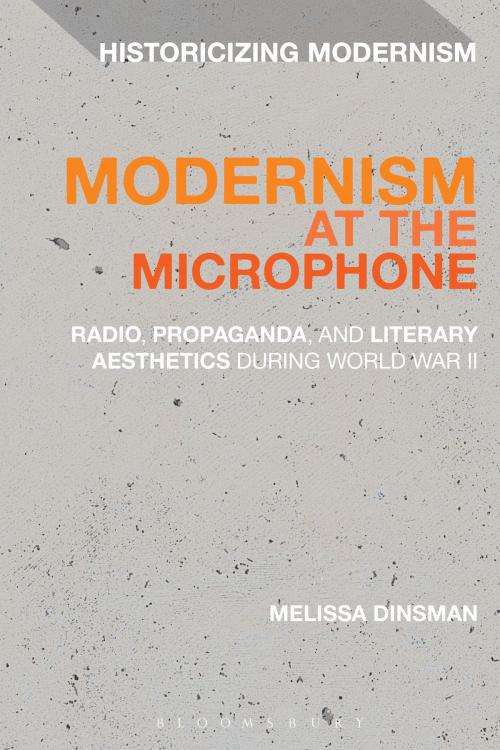Modernism at the Microphone
Radio, Propaganda, and Literary Aesthetics During World War II
Nonfiction, History, Military, World War II, Fiction & Literature, Literary Theory & Criticism| Author: | Dr Melissa Dinsman | ISBN: | 9781472595089 |
| Publisher: | Bloomsbury Publishing | Publication: | September 24, 2015 |
| Imprint: | Bloomsbury Academic | Language: | English |
| Author: | Dr Melissa Dinsman |
| ISBN: | 9781472595089 |
| Publisher: | Bloomsbury Publishing |
| Publication: | September 24, 2015 |
| Imprint: | Bloomsbury Academic |
| Language: | English |
As the Second World War raged throughout Europe, modernist writers often became crucial voices in the propaganda efforts of both sides. Modernism at the Microphone: Radio, Propaganda, and Literary Aesthetics During World War II is a comprehensive study of the role modernist writers' radio works played in the propaganda war and the relationship between modernist literary aesthetics and propaganda. Drawing on new archival research, the book covers the broadcast work of such key figures as George Orwell, Orson Welles, Dorothy L. Sayers, Louis MacNeice, Mulk Raj Anand, T.S. Eliot, and P.G. Wodehouse. In addition to the work of Anglo-American modernists, Melissa Dinsman also explores the radio work of exiled German writers, such as Thomas Mann, as well as Ezra Pound's notorious pro-fascist broadcasts. In this way, the book reveals modernism's engagement with new technologies that opened up transnational boundaries under the pressures of war.
As the Second World War raged throughout Europe, modernist writers often became crucial voices in the propaganda efforts of both sides. Modernism at the Microphone: Radio, Propaganda, and Literary Aesthetics During World War II is a comprehensive study of the role modernist writers' radio works played in the propaganda war and the relationship between modernist literary aesthetics and propaganda. Drawing on new archival research, the book covers the broadcast work of such key figures as George Orwell, Orson Welles, Dorothy L. Sayers, Louis MacNeice, Mulk Raj Anand, T.S. Eliot, and P.G. Wodehouse. In addition to the work of Anglo-American modernists, Melissa Dinsman also explores the radio work of exiled German writers, such as Thomas Mann, as well as Ezra Pound's notorious pro-fascist broadcasts. In this way, the book reveals modernism's engagement with new technologies that opened up transnational boundaries under the pressures of war.















